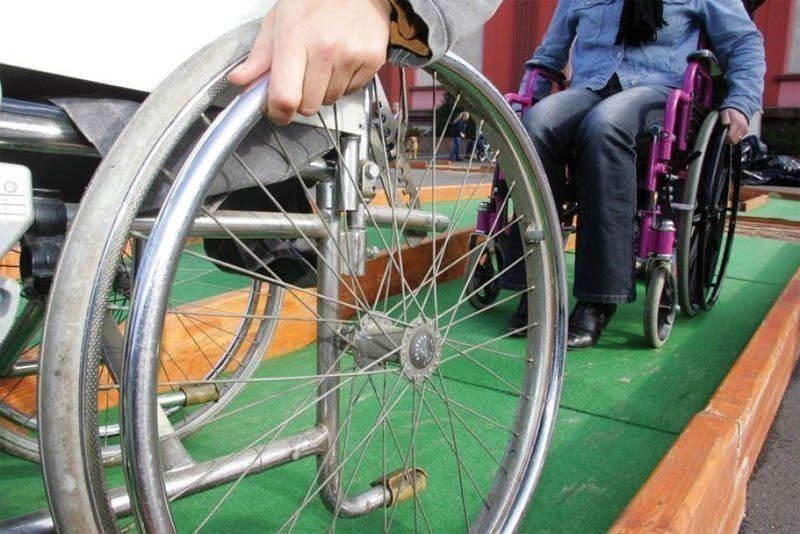Poor data management still a problem for House panel on PWDs

MANILA, Philippines — The lack of clear data on the disability community in the Philippines again posed a problem for the House Special Committee on Persons with Disabilities as it held a hearing on Thursday morning.
At a hearing where lawmakers were supposed to discuss bills on tax exemption and early retirement for PWDs, lawmakers ended up reckoning with conflicting data sets from government agencies and local governments — a recurring theme in the panel's meetings.
The implementation of disability laws has historically been spotty in the country. As it stands, the health department, the social welfare department, along with local governments have their own separate data sets and programs for PWDs.
"The [Department of the Interior and Local Government] is in a position to consolidate the data. Unfortunately, I think it's a question of mandate also...Based on what we gathered, they [might be] wary that there are other agencies that have the clearer mandate as far as consolidation is concerned," Ron Gutierrez, executive director of human rights group Upholding Life And Nature (ULAN), said.
"We've had to sample 25 local government units all over the country and compared this with other data sets. We believe that this study will tell us exactly where we're at, [but] it's really the [Persons with Disability Affairs Office]s and the focal persons for LGUs and municipalities."
According to Gutierrez, who is also a part-time professor at the Ateneo Law School, the health department only has "around 200,000" total recorded PWDs in its database, while the 25 LGUs that ULAN studied had already reached up to 125,000.
Per the country's 2010 census, there were 1.44 million Filipinos in the country living with a disability, a number accounting for 1.57% of the total population that year.
"There is actually an existing data that we have at the local level that probably just needs to be consolidated," Gutierrez said.
'Connectivity among gov't agencies is the problem'
Concerns over the consistency of government data were brought up during the deliberations on House Bill No. 3682 and 2806 when lawyer Lucio Yu Jr., who represented the Government Service Insurance System, pointed out that GSIS had its own standards for entitlement for disability benefits subject to medical evaluation.
Rep. Dahlia Loyola (Cavite, 5th District) also pushed for empowering PWD bodies within local governments, pointing to the Mandanas Ruling of the Department of Social Welfare and Development, under which some of the programs and projects, among which are those involving persons with disabilities, will be devolved to the local government units and the PWD affairs officers of local governments.
"There's no reason not to institutionalize PDAO offices. There's so much they'll be able to do. Local chief executives have to be aggressive in pushing for these," she said.
"There are also only around 400 PDAO offices. That's why I don't know how they will function without assistance," she said.
The main concern with empowering the PWD offices of LGUs, though, is that not all LGUs have dedicated PWD Affairs Offices yet.
A 2018 study by the University of the Philippines Center for Local and Regional Governance found that only six out of ten local governments in the country had established a dedicated PDAO.
This meant that despite the mandate of Republic Act No. 10070, which requires that LGUs designate PWD Affairs Offices, some 33 provinces, 25 cities, and 282 municipalities still lacked PDAOs for their disabled constituents
As in past hearings by the House panel, though, the Department of the Interior and Local Government was a no-show, prompting Rep. Maria Lourdes Arroyo (Negros Occidental, 5th District) to direct the committee secretary to extend a "stronger" invitation to the department.
"We really want the registry for PWDs to be accurate. I've been stating this since the very first meeting, but nobody can come up with it," Arroyo said.
"Connectivity is our problem. Our system as a whole, down to the local government and the PDAO people who don't make IDs," National Council for Disability Affairs executive director Emer Rojas said in agreement.
Still at Square One
When the House panel tackled bills seeking stricter processes for acquiring PWD identification cards, the fragmented data across local governments, who are in charge of issuing PWD cards within their respective localities, hindered lawmakers from making informed decisions.
The House panel on PWDs has faced the problem of data consolidation since the start of the coronavirus pandemic, when many PWDs were unable to avail of the DSWD's Social Amelioration Program due to clerical lapses.
Disability advocates have said that programs or even complaints are harder file without proper data on PWDs. The 2010 census, which tallied only 1.44 million PWDs nationwide, was last known government census on the disability community.
"For a database, data should not just be about their demographic, but also their education and employment. We need to know what the things we need to address are for them," Alyansa ng may Kapansanang Pinoy, Inc. member and PWD advocate Maureen Mata, who was present at the hearing, said.
- Latest
- Trending





























